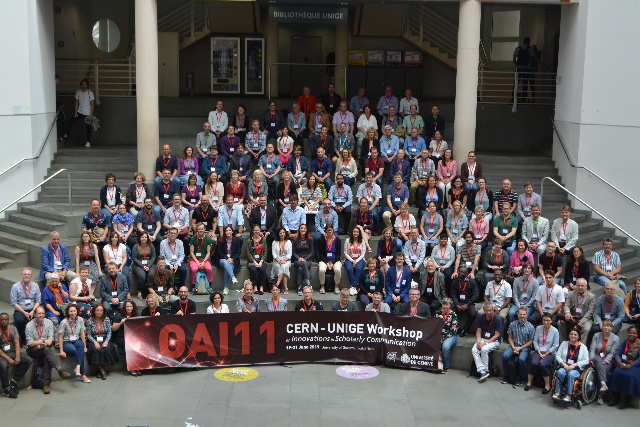Portfolio/Showroom – Making Art Research Accessible
Vortragende*r
Datum
- 19. Juni 2019–21. Juni 2019 Université de Genève - Uni Mail, Genf, Schweiz
Schlagwörter
Digital Humanities, Kulturwissenschaft, Wissenschaftskommunikation, Wissenschafts- und Technologiepolitik, Technikgeschichte, Softwareentwicklung, Human-Computer Interaction
Abstract
Universities and non-university research institutions need to archive and provide a variety of different research data and educational resources. In recent years, international standards for the collection and exchange of metadata have been formulated (see i.a. euroCRIS/CERIF, OAI-PMH) and infrastructures have been created to ensure intra- and inter-university access to the data. Open Access for publications and research data is now regarded by many universities and non-university research institutions as a self-defined goal and is stipulated by the funding authorities. It turns out, however, that while many publications and research data are made available to open access, they are more likely to be distributed on decentralized, mostly commercial platforms, which may define this data as their own and access may be subject to a charge, and less frequently on the institutional repositories and document servers. The decentralized applications of the institutions are, it can be assumed, seldom perceived by artists and scientists as supporting digital tools. This indicates a problem in the design and communication of digital infrastructures. Professionally built up by archival and librarian experts over many years and made accessible with the help of international standards, the diverse application options are often hard to grasp and too complex for users. On commercial platforms on the other hand, such as ResearchGate and Academia.edu, users can find a variety of uploaded articles, up-to-date news on ongoing research projects, and extensive publication lists. What make these platforms better, what features do they provide to encourage users to upload their data and information about their work? These questions were the starting point of a process that began with a series of surveys at the University of Applied Arts Vienna (Angewandte) and is now continued in the project “Portfolio/Showroom – Making Art Research Accessible” (2017–2021) at inter-university level. Together with its project partners basis wien, Austrian Academy of Sciences/ACDH and the University of Music and Performing Arts Vienna, Angewandte will release the first application “Portfolio” in May 2019 as Open Source-software. This presentation introduces the two web applications “Portfolio” and “Showroom”, whose user-driven development aims to provide low-threshold access to CRIS solutions. The functionalities of the two digital tools and the fundamentals of their development (ontology-driven software development) are presented. Finally, the presentation illustrates the environment in which the development (including interfaces to existing repository solutions) takes place. Benefits For Open Science Community include a new take on CRIS (user centred design), low-threshold application, Open Source-software, interoperability through standardised interfaces and vocabulary, integration into existing archiving software (e.g. repository).
Titel der Veranstaltung
OAI 11 – The CERN-UNIGE Workshop on Innovations in Scholarly Communication
Veranstalter*innen

Aktivitätenlisten
-
- Elena Giglia - Fotografie
- Irawan, Dasapta Erwin - Illustration
- Forschungsprojekt »Portfolio/Showroom« - Kooperation
-
Ort
Adresse
- Université de Genève - Uni Mail, Genf, Schweiz
- Genf
- Schweiz
Mediendateien
 Bild#1
Bild#1 Bild#2
Bild#2 Bild#3
Bild#3


